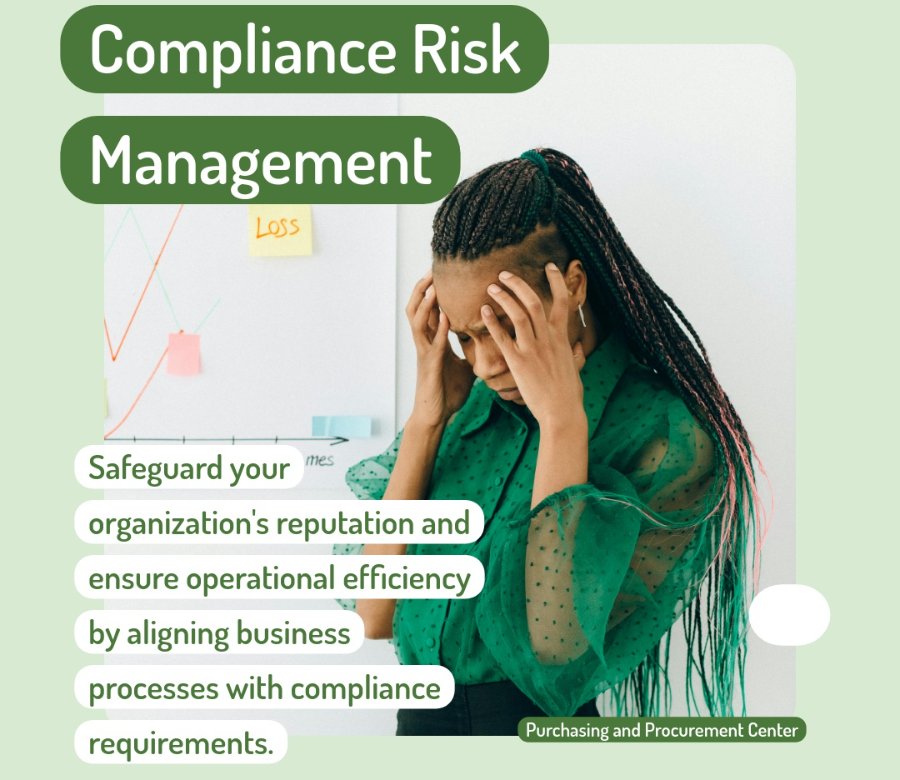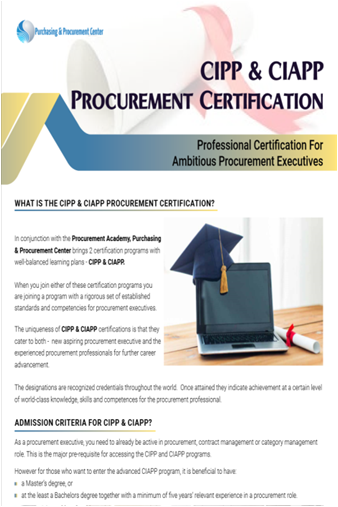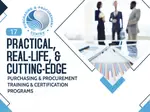Compliance Risk Management Explained
Compliance Risk Management Summary:
1. The Significance of Compliance Risk Management
2. 5 Components of an Effective Compliance Risk Management Program

Compliance risk management is a critical aspect of modern business operations, acting as a guardian against the potentially devastating consequences of failing to adhere to laws, regulations, and ethical standards.
In an era where regulatory frameworks are increasingly complex and enforcement more stringent, understanding compliance risk management effectively is not just a legal necessity but a strategic imperative.
You Might Like This: Training on Fraud Prevention in Contracts & Procurement
The Significance of Compliance Risk Management
The importance of compliance risk management (CRM) cannot be overstated. It is significant as:
Consequences of Ignoring Compliance Risk Management
- It safeguards your organization’s reputation, which can be tarnished by legal battles, penalties, or publicized failures to comply with regulations.
- It helps avoid significant financial penalties that can result from legal violations.
- It ensures operational efficiency by aligning your business processes with compliance requirements, thereby avoiding the disruptions that can result from compliance failures.
Ignoring compliance responsibilities can have dire consequences. Beyond financial penalties, non-compliance can disrupt business operations, lead to litigation, and cause irreparable damage to a company's reputation.
Here's why it is non-negotiable in today's business environment:
- Protects Your Organization's Reputation: In an era where news spreads fast, compliance failures can quickly become public knowledge, causing lasting damage to your company’s reputation.
- Financial Stability: Compliance fines can be significant, not to mention the potential lost revenue from business disruptions. Effective CRM helps protect the bottom line.
- Operational Continuity: Adhering to compliance requirements ensures that business operations are not hindered by legal complications or regulatory actions.
- Competitive Advantage: Companies that are known for strong compliance and ethical practices can differentiate themselves in the market, enhancing trust with clients and investors alike.
5 Components of an Effective Compliance Risk Management Program
CRM is built on 5 foundational pillars, each vital in maintaining robust compliance:
1. Risk Identification:
The first step in managing compliance risk is to identify the specific legal obligations and potential risks an organization faces. This requires a thorough understanding of the regulatory landscape, which can be complex and varied depending on the industry and geographical locations of operations.
2. Risk Assessment:
Once risks are identified, they must be assessed in terms of their potential impact and likelihood. This assessment helps prioritize risks, allowing you to focus your organization’s resources on the most critical areas.
3. Mitigation and Strategy Development:
Developing a strategy to mitigate identified risks is crucial. This includes implementing policies, procedures, and controls designed to minimize risk and ensure compliance.
4. Monitoring and Reporting:
Ongoing monitoring of compliance efforts and the regulatory environment ensures that you can adapt to changes in laws or business activities. Regular reporting keeps stakeholders informed about compliance status and risk exposure.
5. Training and Culture:
Building a culture of compliance within your organization is perhaps the most critical aspect of CRM. This involves regular training for employees on compliance matters and fostering an environment where compliance is seen as everyone's responsibility.
5 Best Practices in Compliance Risk Management
To effectively manage compliance risks, you should consider the following best practices:
1. Comprehensive Compliance Program:
Develop a comprehensive compliance program that covers all aspects of your business. This includes having clear policies and procedures, effective training programs, and robust monitoring and reporting systems.
2. Leverage Technology:
Utilize technology solutions for compliance management. Software tools can automate many aspects of CRM, from risk assessments to monitoring and reporting, making the process more efficient and less prone to errors.
3. Regular Training and Education:
Regular training for all employees, tailored to their specific roles and responsibilities, ensures that everyone understands their compliance obligations.
4. Engage in Continuous Improvement:
Compliance risk management is not a one-time task; it requires ongoing effort and improvement. Regularly review and update your CRM practices to address new risks and regulatory changes.
5. Seek Expert Advice:
The complexities of compliance can be daunting. Don't hesitate to consult with legal and compliance experts to navigate tricky regulatory waters and ensure your strategies are up to the mark.
You Might Like This: Fraud in Procurement: Detection & Prevention Express* White Paper!
5 Challenges You Can Face in Compliance Risk Management
Compliance Risk Management (CRM) is an essential function in procurement, however this area is fraught with challenges, some inherent in the dynamics of modern business and others born from the evolving nature of global regulations.
Below we explore the key obstacles businesses face in their compliance efforts:
1. Rapidly Changing Regulatory Landscape
Regulatory environments are in a constant state of flux, often influenced by political, social, and technological changes.
Keeping abreast of new and amended laws across different jurisdictions can be a daunting task, especially for organizations operating on a global scale.
2. Technological Advances and Cybersecurity Risks
As businesses increasingly rely on digital technologies, the scope of compliance has expanded to include cybersecurity measures and data protection standards.
Regulations such as the General Data Protection Regulation (GDPR) in the European Union impose strict guidelines on data handling and privacy, requiring businesses to adopt sophisticated technological solutions.
3. Cultural and Organizational Alignment
Creating a culture of compliance within an organization is easier said than done. Compliance is not solely the responsibility of a chief compliance officer or a specific department– it requires the engagement and alignment of the entire organization.
Overcoming resistance to change, breaking down silos, and fostering a shared commitment to compliance are significant challenges that can impact the effectiveness of CRM strategies.
4. Resource Constraints
Implementing and maintaining an effective compliance risk management program requires significant investment in human and technological resources.
For many companies, especially small and medium-sized enterprises, these demands can strain budgets and divert attention from core business activities. Balancing the costs of compliance with the risks of non-compliance is a continuous challenge for business leaders.
5. Measuring Compliance Efficacy
Determining the effectiveness of a compliance program can be challenging for you. Unlike other business functions where metrics and outcomes are more easily quantifiable, the success of compliance efforts is often measured by the absence of incidents or breaches.
Developing meaningful metrics and continuously monitoring and adjusting the program to address emerging risks is a critical, yet difficult, aspect of effective CRM.
It’s About Protecting and Enhancing Business Value
At the end of the day, Compliance Risk Management is not just about avoiding penalties– it's more about protecting and enhancing business value.
By identifying, assessing, mitigating, and monitoring compliance risks, your organization can maintain operational continuity, protect their reputation, and achieve financial stability.
Interested in improving your expertise in compliance risk management and more? Enrol into our comprehensive certification program– CIPP and CIPM to acquire globally recognized credentials that demonstrate your credibility in procurement.
Get Back From Compliance Risk Management Explained to Supplier Risk Management




